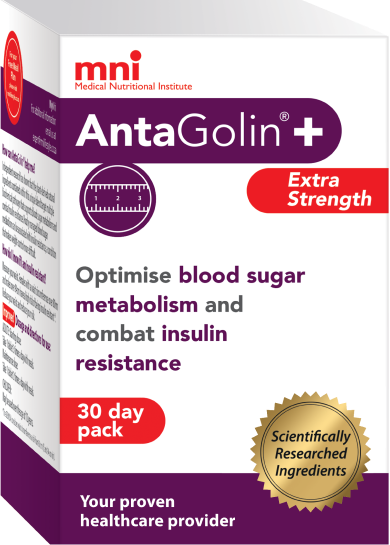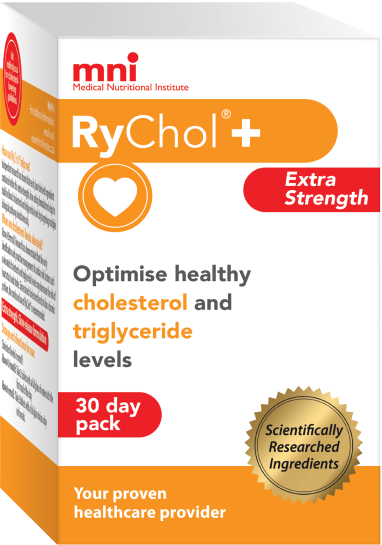What is High Blood Pressure (Hypertension)?
Your blood pressure (BP) is the force exerted by your heart and arteries to keep blood flowing through your body. Your blood pressure is high when that force is excessive.
Most people will experience short bursts of elevated blood pressure at times. This is normal and may be caused by stress, anxiety, excitement, exertion, etc. In fact, an increase in blood pressure can be helpful, enabling you to act quickly, like jumping away from a speeding car, for example.
It’s normal for your blood pressure to rise and fall during the day. But, when it stays elevated over time, this is called hypertension, which is the medical term for high blood pressure.
Blood pressure is recorded using two numbers. The top figure, called the systolic pressure, represents the pressure during the phase of systole, meaning the maximum pressure exerted by the heart when it contracts. The bottom figure, or diastolic pressure, is the pressure exerted during the phase of diastole, when the heart is totally relaxed and being filled with blood. Blood pressure is therefore an indication of the inward force exerted by the arteries, continuously ‘squeezing’ the column of blood due to their elastic nature.
How common is high blood pressure?
High blood pressure is very common. Globally, the overall prevalence of elevated blood pressure in adults aged 25 and over was around 40% in 2008. Due to population growth and ageing, the number of people with uncontrolled hypertension rose from 600 million in 1980 to nearly one billion in 2008.
What causes high blood pressure?
Despite billions of dollars spent on research by the pharmaceutical industry investigating the mechanisms of high blood pressure in order to invent new drugs, the exact cause of hypertension is still not clearly understood. No specific single cause is found in 90-95% of all cases of high blood pressure.
Hypertension is therefore classified as either ‘primary’ or ‘essential’ hypertension (which means high blood pressure with no obvious underlying medical cause) or ‘secondary hypertension’; the remaining 5–10% of cases that are caused by other conditions that affect the kidneys, arteries, heart or endocrine system.
Hypertension can affect anyone, regardless of age, gender or race. The disease processes leading to the development of high blood pressure include narrowing of the arteries, a greater than normal volume of blood, or the heart beating faster or more forcefully than it should. Any of these conditions will cause increased pressure against the artery walls.
There is overwhelming evidence to suggest that lifestyle and body weight plays a major contributing role in hypertension. Blood pressure rises in direct relation to an increase in body weight. Those who are obese are 2-6 times more likely to develop high blood pressure than those of normal weight.
The excessive intake of salt (sodium chloride), especially aggravated by the diminished intake of potassium, causes an impairment of the body’s blood pressure regulating mechanisms. Nutritional factors such as excess alcohol and coffee intake also contribute. Smoking, a lack of exercise and being overweight are all common causes of high blood pressure, with stress being an aggravating factor.
How is hypertension diagnosed?
The Joint National Committee on Prevention, Detection, Evaluation, and Treatment of High Blood Pressure (JNC) uses the following classifications to diagnose hypertension:
| Diastolic BP | Systolic BP | |
| Normal | <120 | <80 |
| Pre-hypertension | 120 – 139 | 80 – 89 |
| Hypertension, Stage 1 | 140 – 159 | 90 – 99 |
| Hypertension, Stage 2 | ≥160 | ≥100 |
What are the complications of high blood pressure?
Persistent levels of elevated blood pressure are detrimental to your health. It makes your heart work harder, straining it abnormally. The heart eventually becomes enlarged and overworked, losing its ability to pump blood properly, which can lead to heart failure. High blood pressure also damages the lining of your arteries, leading to heart attacks, kidney disease and strokes.
Hypertension is also a major risk factor for stroke, aneurysms of the arteries (e.g. aortic aneurysm), peripheral arterial disease and chronic kidney disease. A moderately high arterial blood pressure, left untreated, is associated with a shortened life expectancy.
What are the symptoms of high blood pressure?
One of the more sinister aspects of high blood pressure is that you may not know that you have it. In fact, nearly a third of people with hypertension are totally unaware of the condition. This is why it is often referred to as a ‘silent killer’.
The only reliable way to know if your blood pressure is high is through regular check-ups. This is especially important if you have been told that you are at increased risk of developing high blood pressure in the past. For example, you could be at risk if you have a weight problem, are diabetic, have cholesterol abnormalities or have a family history of high blood pressure and/or heart disease.
What lifestyle changes can improve high blood pressure?
You can take the following steps to both prevent and manage high blood pressure by adopting a healthy lifestyle:
- Maintain a normal body weight (losing even 5kg can lower your blood pressure)
- Reduce dietary salt intake
- Engage in regular aerobic physical activity, such as brisk walking (≥30 min per day, most days of the week)
- Limit alcohol consumption to no more than 3 units/day in men and no more than 2 units/day in women
- Consume a diet rich in fruit and vegetables (e.g. at least five portions per day);
Effective lifestyle modification may lower blood pressure as much an individual antihypertensive drug. Combinations of two or more lifestyle modifications can achieve even better results. [3]
What is the link between high blood pressure and the metabolic syndrome?
The metabolic syndrome is a cluster of disease processes that include obesity, hypertension, impaired glucose tolerance/diabetes and abnormal blood cholesterol profiles. Combined, these conditions lead to an increased risk of heart attack, stroke and diabetes.
References
- National Institute of Health, National Heart, Lung, and Blood Institute. Seventh Report of the Joint National Committee on Prevention, Detection, Evaluation, and Treatment of High Blood Pressure (JNC 7)
- JNC 2014 Evidence Based Guidelines for the Management of High Blood Pressure in Adults. JAMA 2014; 311(5):507-520
- Guidelines for management of hypertension: report of the fourth working party of the British Hypertension Society, 2004-BHS IV. Journal of Human Hypertension 18 (3): 139–85.










